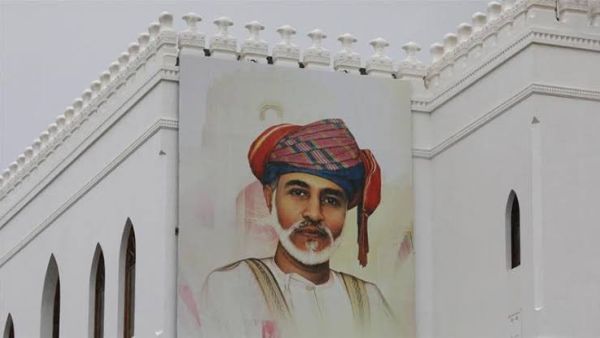Although Sultan Qaboos' sexuality has been open to question for decades, the recent death of the 79-year-old Omani Sultan Qaboos bin Said Al Said on Friday night has re-ignited a conversation surrounding his life.
Sultan Qaboos bin Said Al Said of #Oman, the Arab world's longest-serving ruler, has died aged 79.
— Josh tweets Deeds not Words (@GestaNonVerba) January 11, 2020
He died unmarried, without an heir and, despite long-standing rumours that he was gay, homosexuality in Oman remains illegal and can be punished with a jail sentence of up to 3yrs. pic.twitter.com/5L49ZmF2Ga
Ruling Oman since 1970, Sultan Qaboos' sexual identity has been has often been the subject of speculation, mainly because the Sultan had only one short childless marriage to his first cousin Nawal Bint Tariq.
Succession was always going to be a problem... He was gay and had no children... Everyone in the Middle East knew... He was a typical gulf ruler who took the spoils and had the obligatory yachts and billionaire accoutrements.. https://t.co/OCaWDWSpUA
— Count Monte Christo (@steve_bos_88) January 11, 2020
Over the last 40 years, rumors claimed that the Sultan was leading an openly gay life, without coming out publicly. Although never confirmed or supported by proof, details about Qaboos' affairs with several men have often been discussed online.
Sultan Qaboos was a fascinating political figure, a pillar of stability in the region, and (supposedly!) the only gay monarch in the world. His death is a major political event that has potential to create more chaos in the Middle East. https://t.co/612TTOdArN
— andrew robert francis (@T8NTraynor) January 11, 2020
Even though many online commentators describe the Omani Sultan's sexual identity as an 'open secret', homosexuality remains illegal in the conservative gulf Sultanate and is punishable by law.
Are you gay? Have you told anyone or are you in the closet? Under Sultan Qaboos, gay people went straight to jail (ironically ahem). That's #Oman. That's the dictatorship western analysts, academics and journalists are praising.
— Dr. EJ O'Dell (@emilyjodell) January 11, 2020
On the other hand, several Twitter users explained that existing Omani laws against the LGBTQ community have been rarely applied, clarifying that their experiences in Oman showed them a fairly progressive and tolerant country.
This was not my experience while in Oman, a relatively tolerant and progressive country in the region. Yes, there were existing laws, but very rarely applied. Suggest there are plenty of other places to focus on first eg where LGBT face the death penalty.
— Clifford Brazier (@CliffordBrazier) January 11, 2020
Some activists argued that the Sultan's sexuality should have pushed him to come out publicly, as his wealth and political power could have helped efforts to decriminalize homosexual relationships in the Middle East.
Sultan Qaboos was longest-serving ruler in Arab world and one of the world’s longest-ruling autocrats. Imagine if someone that powerful and rich had come out? He did not use his power or wealth to decriminalize same-sex relations.
— Mona Eltahawy (@monaeltahawy) January 12, 2020
Graduating from the Royal Military Academy Sandhurst in 1962, Qaboos joined the British Army and served in Germany for one year.
Upon his return to Oman, he led a British-backed successful coup against his father, citing plans to modernize the county using its oil revenue. In 1970, Qaboos' father, Said bin Taimur, was sent to exile in England where he died a few years later.







